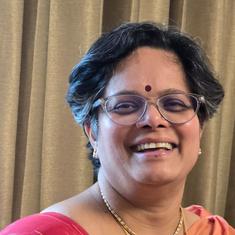On Wednesday, a Supreme Court bench headed by Chief Justice Surendra Kumar Sinha dismissed a petition review filed by Mojaheed and Chowdhury requesting the court to overturn its earlier decisions upholding the death penalty originally imposed by the International Crimes Tribunal.
Late on Saturday, President Mohammad Abdul Hamid also rejected a plea for clemency. The two were hanged hours later at 12.55 am on Sunday in Dhaka Central Jail.
Major political leaders
The execution is significant given the political heft of both Chowdhury and Mojaheed. From 2001-'06, Salahuddin Chowdhury was the adviser of parliamentary affairs in the Bangladesh Nationalist Part government and is a seven-time member of parliament. Ali Mojaheed was the secretary-general of the Jamaat-e-Islami, Bangladesh’s largest Islamist political party and had served as the country’s Minister for Social Welfare from 2001-’06.
In response, the Jamaat has called for a shutdown in Dhaka on Monday. While the executions of Jamaat leaders for war crimes has earlier led to public unrest, there has been no violence this time around till now. As a precautionary measure, however, the administration has flooded Dhaka city with armed police and shut down messaging services such as WhatsApp and the social media website, Facebook.
Till now, 15 people have been convicted by the International Crimes Tribunal, a domestic court set up by the Awami League government in 2008 to try war criminals from the 1971 independence struggle. Of the 15, nine have been Jamaat-e-Islami leaders while two are from the Bangladesh Nationalist Party.
1971 pogroms and killings
The charges for which Chowdhury was sentenced included carrying out two anti-Hindu massacres in 1971, the murder of a social worker Natun Chandra Sinha and an Awami League leader Mozaffar Ahmed and his son.
Ali Mojaheed was a senior leader in the Al-Badr, a paramilitary organisation associated with the Pakistan Army in 1971. Mujahid was convicted for his role in the killing of intellectuals by the Pakistan Army at the fag end of the 1971 War. On December 14 that year, with the war already lost, the Pakistani Army picked up around 200 intellectuals from across Dhaka and executed them. Two days later, the Pakistani Army surrendered to India. Bangladesh commemorates December 14 as the Day of the Martyred Intellectuals.
Some observers have, however, called out the International Criminal Court for its allegedly flawed legal process. A commentator on Bangladesh, David Bergman, while noting that Salauddin Quader Chowdhury “is a highly communal figure” also argues that he did not receive a fair trial in this particular case.
In spite of these doubts, however, the trial is being seen as significant step in Bangladesh’s politics. “Since 1971, there has been a lot of misinformation as to what the Independence struggle was about. But this trial bought out the enormity of the killings in 1971 and especially its communal nature,” said Khushi Kabir, a Bangladeshi human rights activist.
Fight for national character
The verdict comes in a long line of events that marks a struggle to define Bangladesh’s national character. In Bangladesh, the seminal 1971 war of independence is often used a peg to launch current-day struggles over secularism. The most significant such event was the mass demonstrations in 2013, popular known as the Shahbag Protests, which demanded the death sentence for Jamaat-leader Abdul Quader Molla. While the ruling Awami League has been enthusiastic in prosecuting people involved with war crimes as part of its secular political message, right wing parties such as the Bangladesh Nationalist Part and the Jamaat-e-Islami have been bitterly opposed to this.
Bangladesh has also seen a recent series of targetted killings, with Islamists murdering secular writers and intellectuals. On Wednesday, Bangladesh police claimed that they had arrested three people connected with the murder of atheist blogger Niladri Chottapadhyay. Chottapadhyay had been hacked to death in Dhaka in August and was the fourth secularist blogger to have been killed this year.










